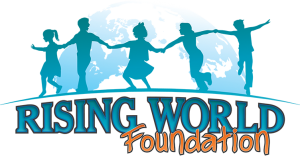The Positive Music Movement
The Positive Music Manifesto
”Music hath charms to soothe the savage breast,
To soften rocks, or bend a knotted oak.”
William Congreve
The Mourning Bride Act 1
We, the members of the Positive Music Movement, proclaim the emergence of a new artistic movement for the 21st Century based on the highest purpose of art and music, the expression of healing, upliftment, spirituality and love.
The benefits of music have long been recognized in therapy, and the ability that some music and songs have to bring about tears, laughter, and even grief has long been realized. A more complete knowledge of the effects that music can have on our lives has been little understood.
Ancient cultures knew about these effects, however. The Chinese knew that altering any single note of their five-note scale would cause a major change in the effect that music would have on society. Plato wrote about the effects that various scales produced. The musicians of ancient India recognized the effects of particular scales and music was composed with a specific emotional, mental or physical outcome in mind. In ancient Persia, scholars such as Farabi, Ormavi, Maraghi, Razi and Abu Ali Sina were well versed in the effect of music and its application in music therapy and discussed these topics in their writings.
The members of the Positive Music Movement believe that the time has arrived for a new direction in the evolution of music, a direction not associated with specific stylistic changes, as we have seen in movements in the past, but associated with the acceptance of what we have learned and appreciated from great art of all ages and cultures.
Great works of art have always come from a combination of talent/genius and spiritual development. In order for greatness to express itself in the 21st Century, the artificial confines of conformity to a particular style and to the concept of an avant garde must be removed. Then music and art will be free to be accepted for its ability to express that which all great art expresses instead of being measured by conformance to, or originality of, a particular style.
We live in a world that has become inter-connected by an amazing computer network through which we have access to information undreamed of in previous generations. Great artistic advances can be enabled using internet and computer technology. The old ways of creation and distribution of music and art are breaking down now as the greater technology of the Internet develops, providing a means for distribution that was never available in times past. The Internet provides the means for great music to be disseminated to any place in the world without overhead and distribution costs associated with traditional media.
Additionally, we recognize that during the previous century, a great deal of music of a negative nature was created in the popular, classical, and sacred genres and this music has managed to hold sway. But the trend toward discord, abnegation of melody, ugliness, and anger has reached its peak, we feel, and many people are now looking for something more substantial, allowing voices, both new and ancient, to now be heard. The members of this movement do not support banning or condemning this music, or music of any kind, nor will we act in opposition to any type of music. It is not by working against old artistic trends that new ones are created, but by introducing something so great and so powerful, that its very existence will attract peoples naturally.
We support bringing beautiful and heartfelt masterpieces of music to the concert halls and into people’s homes and places of work. We support the distribution and performance of inspired works of music from cultures the world over, both current and past, both classical and popular. We support education to bring the knowledge of great music from all cultures and times to people of all ages, throughout the world.
We hold that as the highest purpose of art is given its rightful place, a greatness in artistic expression will flourish.
Signed by the Members of the Positive Music Movement
April, 2004
Members of the Positive Music Movement
Don Robertson. Bio is here
Richard Shulman. Richard Shulman is a composer, keyboardist, and recording artist who has since 1984 dedicated his music to the expression of love and the awakening of inner joy. A former student of Chuck Mangione and Marian McPartland at the Eastman School of Music, and Frank Foster at the University of Buffalo, Shulman uses his skills as a jazz, classical, and healing-music keyboardist to create music to assist groups and individuals in embodying their own spiritual essence. Website
Charles Berry. Charles Roland Berry is a composer born in Boston, Massachusetts in 1957. After formal composition study at the University of California, Santa Barbara, Mr. Berry studied privately with American symphonist, Paul Creston. An exchange of letters between Mr. Berry and John Cage was published in David Cop’s New Directions in Music, 4th edition. In 2003, the Olympic Mountains Overture and the Quileute Overture were recorded by the Moravian Philharmonic Orchestra, in Olomouc, Czech Republic. His Cello Concerto, Symphony No. 3 and other works were released in 2008 on Centaur CD #2898. Website
The Nasehpoor Family. Nasrollah Nasehpoor was born in 1940. He is a vocalist and a master of vocal radif repertoire of Persian art music. He and his three sons constitute the Nasehpoor Ensemble in Tehran/IRAN. Peyman Nasehpour, born in 1974, is the hand-drummer (tonbak, ghaval and daf). Pooyan Nassehpoor, born in 1975, is the santoor player and researcher of old musicians and old music of Persia. Parham Nassehpoor, born in 1976, is the Persian tar and kamancheh player.
Beth Anderson. Beth Anderson (M.F.A./M.A.) is a composer of new romantic music, text-sound works, and musical theater. Born in Kentucky, she studied primarily in California, but now resides in New York City where she produces Women’s Work, a concert series for Greenwich House Arts, and the New York Women Composers, Inc. Website
Nancy Bloomer Deussen (1931-2019). Nancy Bloomer Deussen was a prominent San Francisco Bay Area composer and co-founder of the Bay Area chapter of The National Association of Composers, USA. She had been a dedicated champion of more accessible contemporary music, a viewpoint amply demonstrated in all of her works. A composer who is well-loved by audiences, Bloomer Deussen received numerous commissions. She has received performances by numerous orchestras and has also had numerous performances by chamber ensembles, brass ensembles, bands and soloists across the country. Website
Barbara Hero (1925-2021). Barbara Hero was an artist, composer, musician and mathematician who has devoted many years to the understanding of and applications of the secrets hidden within the wisdom of the ancient Lambdoma Matrix. Website
Daveed Korup. Daveed Korup hails from Charlotte, NC and is a percussionist and composer. His primary focus has been the music of North Africa, the Middle East, and Central Asia. In 1997 he became the percussionist for the Eurasian folk ensemble, Turku. In 2007, he became the performing arts specialist for Port Discovery Children’s Museum. Website
Eliana Gilad. Eliana Gilad is the founder of Voices of Eden and is an acknowledged international expert in the field of conscious use of voice. She developed a medically proven healing voice system and over the last 20+ years she has revived the ancient healing feminine voice traditions of pre-biblical near-east. Eliana has trained over 10,000 conscious professionals through the Voices of Eden trainings and Therapeutic Singing Certification program. She was nominated for L.A. Mayor Garcetti’s Small Business Award for Innovation, has given two TEDx talks, presented twice at the UN, presented with Deepak Chopra, Bobby McFerrin, Michael Beckwith, Marianne Williamson, as well as being endorsed by Gregg Braden, Dr. Masaru Emoto and thought leaders in the health, wellness, feminine leadership and new science genres. Website
Kobi Hagoel. Kobi Hagoel (BA.Mus + BA Mus.Ed + MA Mus.) is a musician, singer and actor who lives in Israel. He composes world music, sings and plays Middle Eastern percussion and is a researcher as well as teacher of different styles of Middle Eastern percussion. In 1995, he a formed the band that mixes Middle Eastern and Western music. It is called “Kav Hatefer”. They perform around Israel. Website, YouTube
Dr. Sanjeeb Sircar. Dr. Sircar is a New Delhi-based sitar player, composer, and singer of Indian classical, Christian, and jazz-fusion music. Prominent among his teachers are Grammy Award nominee, Ustad Shujaat Khan (son of the sitar legend-Ustad Vilayat Khan). In 2008 he was awarded the Best International Ambient Male Artist, of the Toronto Exclusive Magazine International Awards and an Award of Excellence by the India World Cultural Forum in 2014. His recordings are regularly featured over select TV and Radio broadcasts internationally. Website
The Concert at the United Nations in New York
Concert
“Music of Peace”
at the Library Auditorium of the United Nations
1st Ave
New York City
with members of the Positive Music Group
Friday, October 22nd, 2004
1:15 2:45 pm
The concert was performed by the following musicians:
Richard Shulman – Composer, pianist – Asheville NC
Nancy Bloomer Deussen – Composer, pianist – Palo Alto CA
Voices of Eden Ensemble – from Israel:
Eliana Gilad – Voice, percussion
Samir Makhoul – Violin
Sunita Staneslow – Harp
Beth Anderson-Harold – Composer, pianist – NYC
Bluegate – A healing music ensemble

